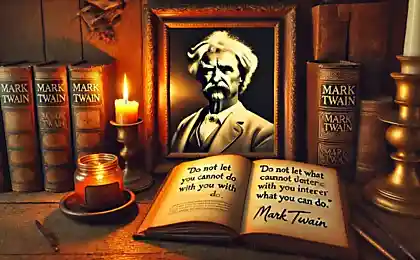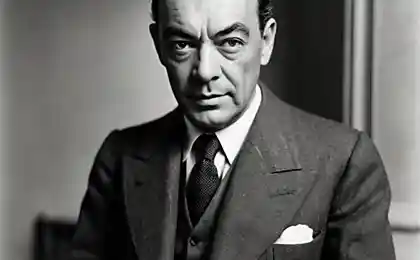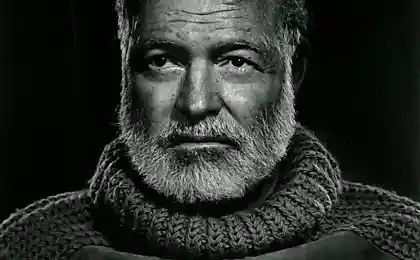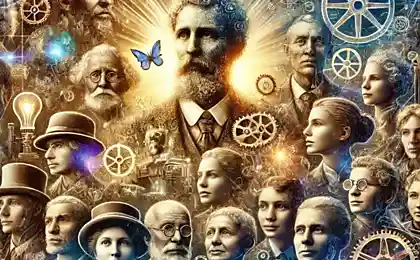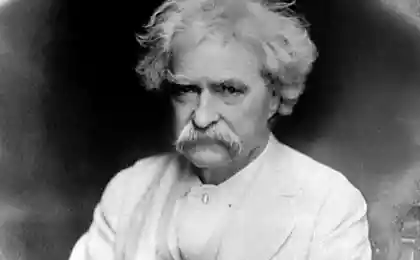226
Philosopher-Jumorist: 10 quote Marka Tuvena
“There are two most important days in a man’s life: when he was born and when he understood why. But without the second, the first loses its meaning.” This famous phrase of Mark Twain is not just a vivid aphorism, but the quintessence of his philosophical worldview, clothed in a witty form.

Mark Twain, Master of Wit and Deep Philosophical Observation
Samuel Langhorn Clemens, known worldwide under the pseudonym Mark Twain (1835-1910), has long gone down in history as a classic of American literature. However, his legacy goes far beyond just a talented storyteller and humorist. The philosophy of life contained in his works and statements remains relevant today, more than a century after his death.
Wisdom through the prism of humor
Twain’s genius lay in his unique ability to convey deep philosophical thoughts through the prism of humor and irony. He was not just a writer, but a true thinker whose observations of human nature, society, and the meaning of life do not lose their insight over time.
His philosophy of life was shaped both by personal experience and by a deep understanding of the contradictions of human nature. Traveling the world, working as a pilot on the Mississippi, a gold prospector and a journalist, Twain had the opportunity to observe society from different angles, which gave his thoughts a special depth.
10 philosophical quotes of Mark Twain, changing the worldview
Despite the humorous tone, many of Twain’s statements contain a deep philosophical grain. Let’s look at ten of his quotes that can serve as real life reference points.
1st
“There are two most important days in a man’s life: when he was born and when he understood why. But without the second, the first loses its meaning.”
This statement is the quintessence of existential philosophy. Twain emphasizes that the simple fact of existence has no value without an awareness of one’s life mission. Self-knowledge and goal-setting are brought to the fore as sources of meaningful existence.
2.
“Twenty years from now, you will be more disappointed with the things you didn’t do than the things you did. So drop the doubt. Get away from the safe harbor. Catch the wind with your sails. Explore. Dream. Open up.
This quote traces the idea of an active life position and a call to action. Twain warns against passivity, stressing that missed opportunities generate much deeper regret than mistakes made.

The choice of life path is one of the central themes of the philosophy of Mark Twain
3
“The best way to cheer yourself up is to cheer someone else up.”
It’s an amazingly modern understanding of the relationship between personal well-being and altruism. Twain intuitively came to the conclusion, which today is supported by psychological research: helping others, we help ourselves.
4.
Kindness is a language that the deaf can hear and the blind can see.
In this aphorism, Twain emphasizes the universality and transcendence of kindness that transcends physical, linguistic, and cultural barriers. This statement reflects his humanistic philosophy and belief in the fundamental importance of moral values.
5
“Truth is more unusual than fiction, because fiction must be kept within the bounds of the possible, and truth is not.”
This quote reflects a philosophical reflection on the nature of reality and human perception. Twain emphasizes the paradox of life, which often transcends the wildest fantasies, pointing to the limitations of imagination compared to the infinite variety of reality.
How to apply the philosophy of Mark Twain in everyday life
Twain’s wisdom is not just a collection of beautiful phrases, but a tool for self-improvement. Here are some practical ways to integrate his philosophy into your life:
- Make life meaningful. Following Twain’s idea of the importance of self-knowledge, ask yourself regularly, “What am I living for?” Write down your values, goals and aspirations to better understand your life path.
- Overcome the fear of failure. Remember the regret that comes from unfulfilled opportunities. Start small – do what you put off for a long time out of fear.
- Practice kindness as a way of life. Do at least one act of kindness every day, even a small one. Over time, this will become a habit that improves both your life and the lives of others.
- Keep your curiosity. Develop an interest in the world, ask questions, read on a variety of topics - this broadens your horizons and helps you understand life more deeply.
- Use humor as a tool to overcome difficulties. Learn to see absurdity and humor in difficult situations, which will help you deal with them more effectively.
6
“Man does not need years, but moments. One moment is enough to become a hero or a criminal.”
In this quote, Twain addresses an important philosophical theme of choice and its consequences. He emphasizes that the fate of a person can be determined not by the duration of existence, but by the critical moments of decisions that form the personality and the path of life.
7
Progress was good, but it went too far.
This statement reflects Twain’s critical view of technological development and modernization of society. The writer calls for understanding the pace of progress and its impact on human values and interpersonal relationships – a topic that remains extremely relevant in the era of digitalization.
8.
“When you think the world is against you, remember that an airplane takes off against the wind, not the wind.”
In this metaphor lies a deep philosophical idea about the nature of obstacles and resistance. Twain reinterprets difficulties as a prerequisite for growth and achievement, suggesting that they be seen not as obstacles, but as opportunities for development.

Mark Twain’s Literary Legacy: A Bridge Between Entertainment and Deep Philosophy
9.
“Never argue with stupid people. They will bring you to their level and then win with their experience.”
This aphorism combines humor and practical wisdom. Twain points to the futility of intellectual disputes with those who are unable or unwilling to engage in constructive dialogue, offering a more productive use of their time and energy.
10.
The two most important dates in your life are the day you were born and the day you figured out why.
Returning to the key theme of the article, this quote is a different formulation of Twain’s central philosophical idea of the search for life purpose. It emphasizes the importance of self-knowledge and meaningful existence as the foundation of human happiness.
The Legacy of the Humorist Philosopher: What We Can Learn
The uniqueness of Mark Twain’s philosophy lies in the combination of deep intellectual analysis and accessibility. His wisdom does not require special preparation for perception, but it touches upon fundamental questions of human existence:
- Meaningful existence. Twain focuses on the need to find your calling, stressing that life without purpose is devoid of true value.
- Courage in making decisions. The writer urges not to be afraid of risk and the unknown, because it is decisive action that opens new horizons.
- Critical thinking. Twain encourages independence of judgment and skepticism toward accepted norms and authorities.
- Humanism and empathy. Through sarcasm and irony shines the writer’s deep faith in human dignity and the importance of compassion.
- Humor as a tool for understanding reality. Twain demonstrates how laughter helps to cope with difficulties and see the absurdity of life situations.
Conclusion: Everyday Philosophy
Mark Twain’s legacy as a humorist philosopher lies in his amazing ability to put deep thoughts into a form accessible to everyone. In the era of information overload and endless haste, his aphorisms serve as kind of beacons that help not to lose course in the ocean of everyday worries.
By applying his wisdom to everyday life, we can learn to appreciate every moment, find meaning in what is happening, and maintain our humanity in all circumstances. And perhaps the main lesson Twain teaches us is the ability to look at life seriously and with a smile, combining depth of thought with ease of perception.
So let us follow the advice of the great writer and philosopher: find our purpose, become bolder in choosing a life path, be kind to others and do not forget to add a pinch of humor to every day.
Glossary
Existential philosophy
Direction in philosophy, focusing on the problems of human existence, his place in the world, freedom of choice and search for the meaning of life.
Targeting
The process of defining and realizing life goals that give existence direction and meaning.
Humanism
A system of views affirming the value of man as a person, his right to freedom, happiness and development, putting the good of man as a criterion for assessing actions and phenomena.
Self-knowledge
The process of a person’s knowledge of himself, his abilities, talents, strengths and weaknesses, leading to a more conscious life.
altruism
A moral principle prescribing selfless actions for the benefit of others, the opposite of selfishness.
Critical thinking
A type of thinking characterized by the ability to analyze information, verify facts, not take on faith established beliefs and authoritative opinions.
Transcendence
In philosophy: going beyond ordinary experience, overcoming the boundaries of the usual perception of the world.
7 types of walking that will help to improve health and diversify training
7 Signs You’re Overflowing With Negativity and It’s Time to Get Rid of It

